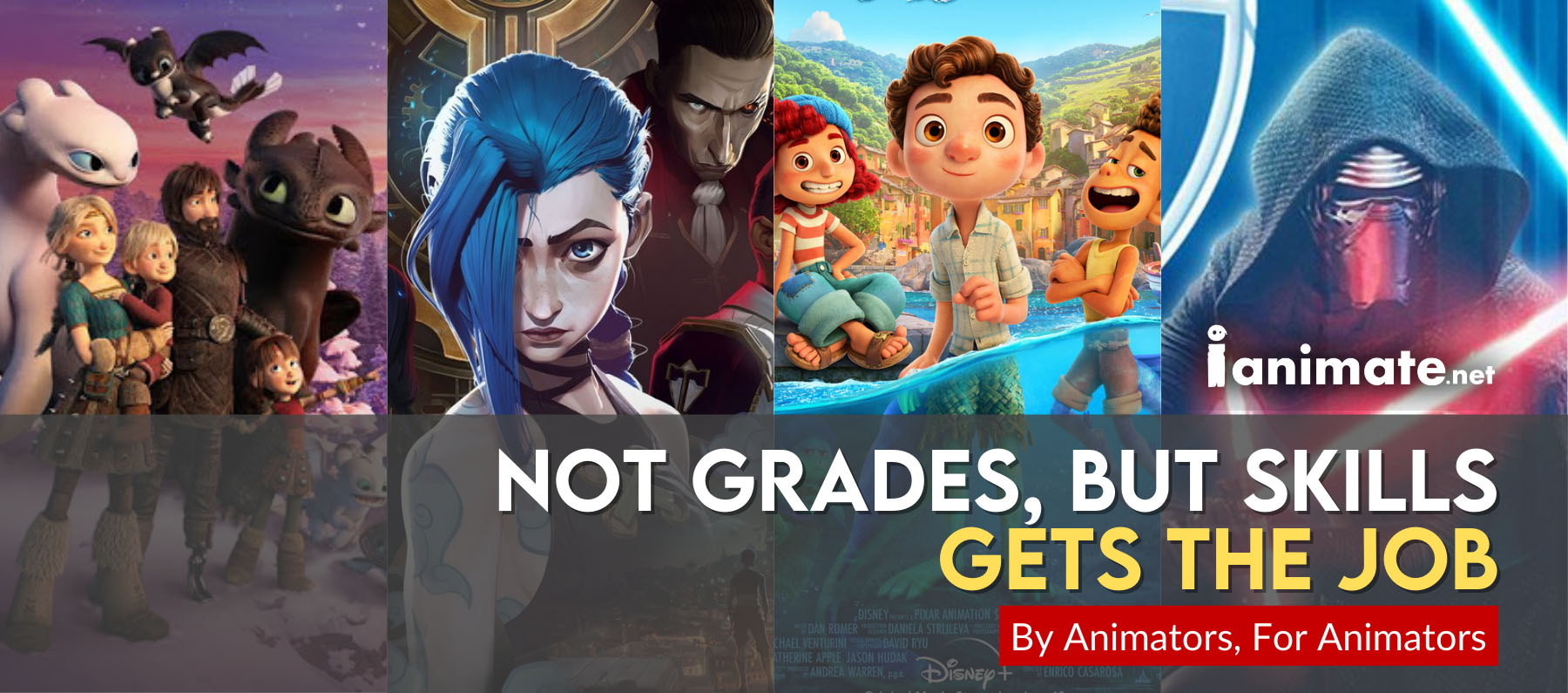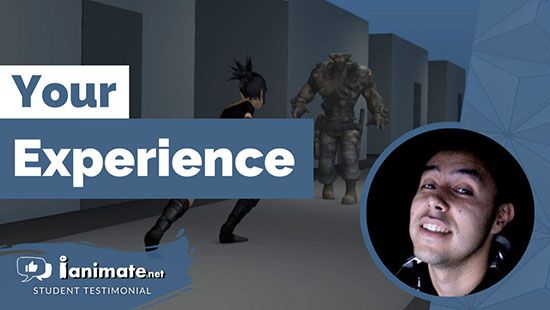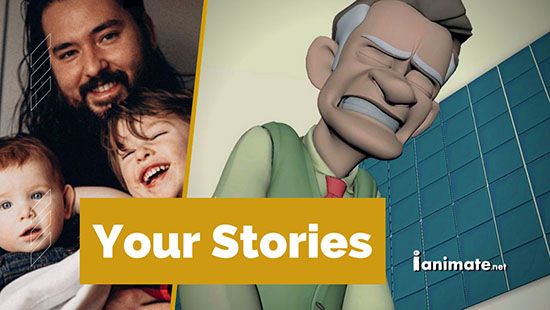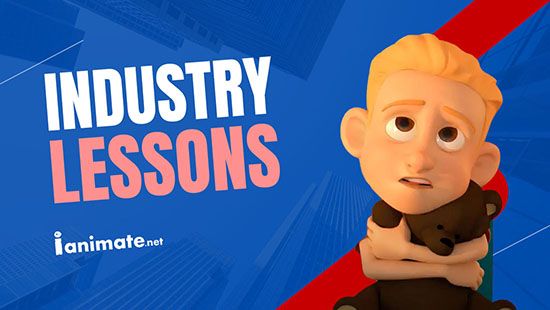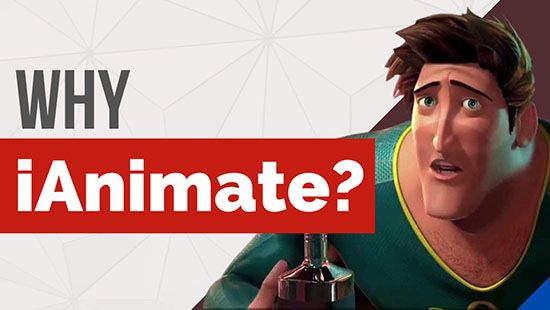Animation Recruiters' Perspective: Stand Out and Get Hired
Article by Richard Arroyo & iAnimate
Understanding the animation recruiters' perspective is crucial for artists hoping to stand out in this highly competitive industry. Having spent years on both sides of the hiring and outsourcing talent, we've witnessed talented candidates miss opportunities simply because they failed to consider what studios are truly seeking beyond technical skills. Our goal is to pull back the curtain on this process, sharing insights that will help you position yourself not just as a capable animator but as the solution to a studio's specific needs.
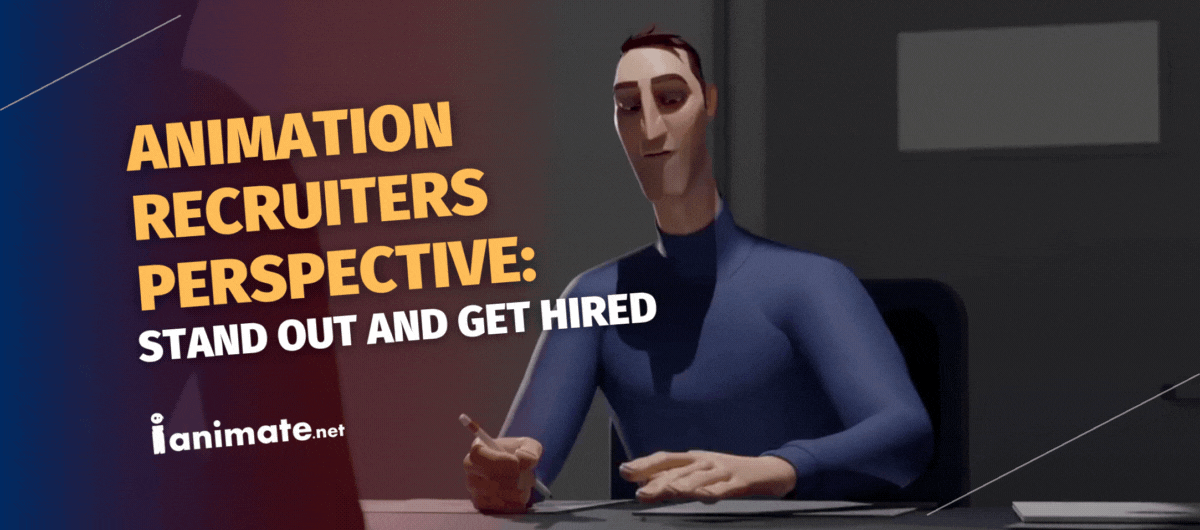
What Recruiters Look For: Beyond Just Skill
Ever wonder what goes through an animation recruiter's mind when they're looking at your work? Animation recruiters' perspective: they see hundreds of reels every month. Technical skills are just the starting point. What really catches their eye is your unique artistic voice.
Animation studios aren't just hiring a pair of hands – they're bringing on a creative mind. Recruiters are searching for that spark that sets you apart from everyone else using the same software.
Recruiters look for:
- Passion for animation that shines through your work
- Problem-solving abilities – how you approach challenges
- Adaptability – can you adjust to different styles?
- Collaboration potential – will you fit with the team?
When hiring managers review portfolios, they're asking themselves: "Does this person bring something fresh to our projects?"
Your dedication to continuous learning speaks volumes. The animation field evolves constantly – showing you stay updated with industry trends demonstrates commitment. Remember that recruiters are the gatekeepers of animation studios.
They're not just evaluating skill – they're imagining how you'll contribute to the creative environment. Showcase your technical abilities, but don't forget to let your personality and unique perspective shine through.
Crafting Your Portfolio: Your Animation Calling Card
"Will anyone even look at my work?" is something I hear from new animators all the time. Let me share an animation recruiters’ perspective on this – your portfolio is absolutely the first thing we check. Think of your portfolio as your visual handshake with studios. It's not just about showing off – it's about proving you can solve their creative problems.
Your demo reel is the beating heart of your portfolio. Keep it short and sweet – 1-2 minutes of your absolute best work. Lead with your strongest piece to grab attention immediately. From our years reviewing applications, we've noticed portfolios need:
- Focus – show the specific role you want (character animation, creature work, etc.)
- Polish – clean, professional presentation matters
- Personality – let your unique style shine through
- Relevance – tailor selections to match the studio's style
Your resume and cover letter work alongside your portfolio to tell your complete story. Resumes for animation jobs should be:
- Clear and simple
- Focused on relevant experience
- One page, when possible
- Free from fancy but hard-to-read designs
For cover letters, animation hiring managers want to see:
- Why do you connect with their studio specifically
- How your skills match their current needs
- Brief mentions of relevant projects or training
From an animation studio's perspective, these documents help us picture where you'd fit in our team. Remember to update your materials regularly as you grow. At iAnimate.net, we help students build portfolios that actually get noticed by industry gatekeepers.
The strongest portfolios show not just what you can do, but who you are as a creative person. When crafting these materials, always ask: "Does this help the recruiter understand my value?"
Preparing for the Interview: Confidence and Connection
"What if I freeze up when they ask me questions?" is a fear I hear from nearly every animator. From our animation recruiters' perspective, the interview is where we see the person behind the portfolio. Getting to this stage means your work impressed us – now we want to know if you're the right fit. Remember, animation studios hire people, not just skillsets.
The best way to prepare is to know your own work inside and out. Be ready to talk about:
- Your creative process – how you approach animation challenges
- Specific choices you made in your demo reel pieces
- Technical decisions – why you animated something a certain way
- Collaboration experiences – how you work with others
Animation hiring managers typically ask questions like:
- "Walk me through how you created this character animation."
- "What was challenging about this project, and how did you solve it?"
- "How do you handle feedback and revisions?"
- "Which animators or studios inspire your work?"
Don't just memorize answers – practice having actual conversations. Your genuine enthusiasm for animation should shine through naturally. Research the studio before your interview – know their recent projects and style. When we’re interviewing potential students for iAnimate.net, we’re looking for a genuine connection to the craft. Show up on time, dress appropriately, and test your tech if it's a virtual meeting. It's perfectly fine to take a moment to think before answering questions.
The strongest candidates ask thoughtful questions about the studio and role. Remember that interviews go both ways – you're also deciding if this studio is right for you. Be honest about your skills – don't claim expertise you don't have. Animation is a team sport – showing you're a good teammate matters as much as your technical abilities.
Networking Smartly: Building Genuine Relationships
"I'm not good at schmoozing – will that hurt my animation career?" is something worried animators ask me all the time. From an animation recruiter’s perspective, who knows your work can be just as important as how good it is. The truth is, animation is a surprisingly small industry built on relationships. Nearly every job I've gotten came through someone I met at an event, class, or previous project. Networking isn't about collecting business cards – it's about making real connections. Animation studios often hire people they already know or who come recommended. Why? Because animation is team-based work that requires trust. Smart networking means:
- Being genuinely interested in others' work and journeys
- Asking thoughtful questions instead of just talking about yourself
- Following up meaningfully after meeting someone new
- Offering help before asking for favors
Industry events worth attending include:
- Animation festivals
- Studio workshops
- Online meetups
- Industry conferences
- Local animation gatherings
Many of our iAnimate.net students land opportunities because our mentors remember their dedication and growth. Quality connections beat quantity every time. One deep relationship with a working animator can open more doors than 50 shallow LinkedIn connections. When you meet industry pros:
- Listen more than you talk
- Ask about their current projects
- Share specific things you admire about their work
- Be respectful of their time
The best networkers show up consistently over time. Online presence matters too – keep your work updated and engage thoughtfully with others. Remember that networking goes both ways – always think about what you can offer, not just what you can get. From the hiring manager's view, a recommendation from someone they trust carries enormous weight. Build relationships before you need them – the worst time to start networking is when you desperately need a job.
Offering Value: How You Can Contribute
"Why would they pick me when there are so many talented animators out there?" is the question that keeps many artists up at night. From our animation recruiters' perspective, the candidates who stand out are those who clearly show what they bring to the table. Studios aren't just hiring skills – they're investing in solutions to their creative challenges.
The most successful animators think beyond their own needs and consider what studios actually want. Every animation team has gaps they're trying to fill. Your job is to position yourself as the missing piece of their puzzle. Ask yourself these questions:
- What unique perspective do I bring?
- What specific problems can I solve?
- How will the studio be better with me on board?
Value you can offer includes:
- Fresh creative approaches that might not exist in their current team
- Specialized skills in specific animation styles or software
- Positive energy and collaborative spirit
- Dedication to quality and attention to detail
- Efficiency in your workflow and processes
Animation studios are looking for team players who make everyone around them better. Hiring managers remember candidates who show genuine interest in contributing to the studio's vision.
At iAnimate.net, we train animators to think like problem-solvers, not just artists. The strongest applicants research the studio's pain points before interviews. Maybe they need someone comfortable with creature animation, or perhaps they're expanding their cinematography skills.
Showing how you fill that specific need makes you instantly more valuable. Remember that animation is a service industry – we create art that serves a larger purpose. Demonstrating that you understand this mindset puts you miles ahead of technically skilled but self-focused applicants. From an animation studio's perspective, the ideal candidate is someone who elevates the whole project.
Top 5 FAQs for Animation Recruiters' Perspective
1: What do animation recruiters look for beyond technical skills?
Animation recruiters look for your unique artistic voice and creative perspective that sets you apart. They value passion for animation, problem-solving abilities, adaptability to different styles, and collaboration potential. While technical skills get you in the door, recruiters are ultimately hiring complete creative professionals who can contribute fresh ideas and fit into their studio culture. They want to see commitment to continuous learning and how you stay updated with industry trends.
2: How important is my portfolio and demo reel to animation recruiters?
Your portfolio is absolutely critical - it's the first thing recruiters check and serves as your visual handshake with studios. Your demo reel should be 1-2 minutes of your absolute best work, leading with your strongest piece. Focus on showcasing the specific animation role you want, ensure everything is polished and professional, let your unique style shine through, and tailor your selections to match each studio's style. From an animation recruiter's perspective, your portfolio demonstrates not just what you can do, but who you are as a creative person.
3: How can I make the best impression during an animation job interview?
Animation interviews are where recruiters see the person behind the portfolio. Be prepared to discuss your creative process, specific choices in your demo reel, technical decisions, and collaboration experiences. Research the studio beforehand, show genuine enthusiasm, and be honest about your skills. Ask thoughtful questions about the studio and role. Remember that animation is team-based - showing you're a good teammate matters as much as your technical abilities. Practice discussing your work naturally rather than memorizing answers.
4: Why is networking so important in the animation industry?
In animation, who knows your work can be just as important as how good it is. It's a surprisingly small industry built on relationships, and studios often hire people they already know or who come recommended because animation requires teamwork and trust. Quality connections beat quantity - one deep relationship with a working animator can open more doors than 50 shallow LinkedIn connections. From the hiring manager's view, a recommendation from someone they trust carries enormous weight. Build relationships consistently over time, before you need them.
5: How can I position myself as a valuable asset to animation studios?
Think beyond your own needs and consider what studios actually want - position yourself as the solution to their creative challenges. Offer unique value through fresh creative approaches, specialized skills in specific animation styles/software, positive energy, dedication to quality, and efficient workflows. Research the studio's pain points before interviews and show how you fill their specific needs. Animation studios are looking for team players who make everyone around them better and understand that animation is a service industry creating art that serves a larger purpose.
